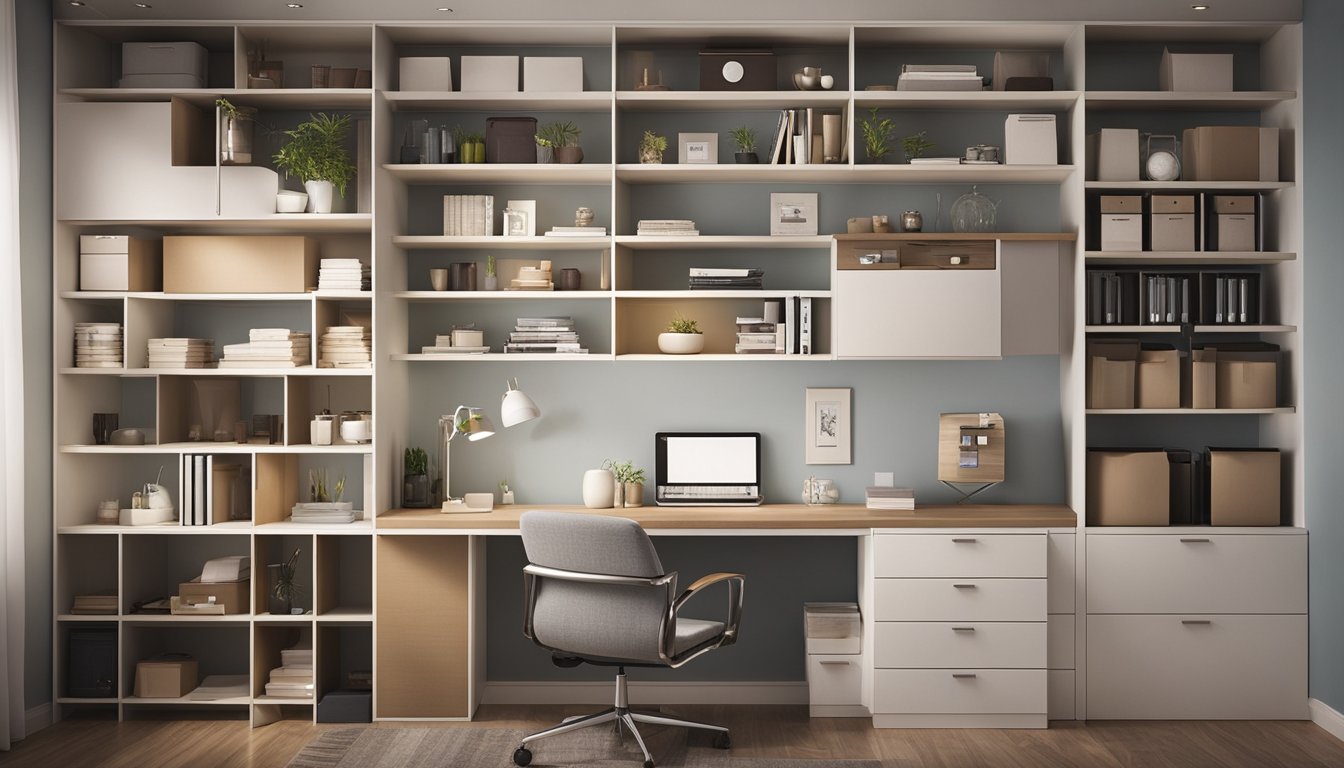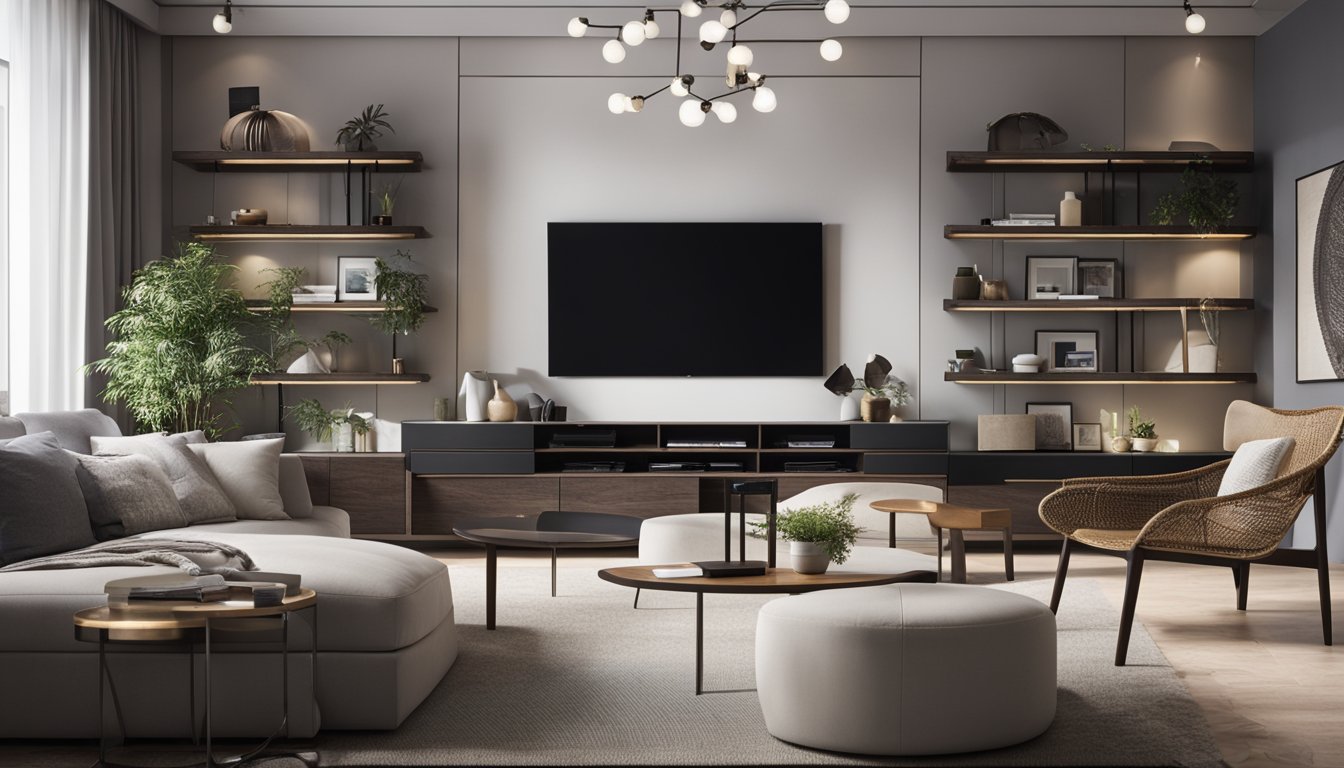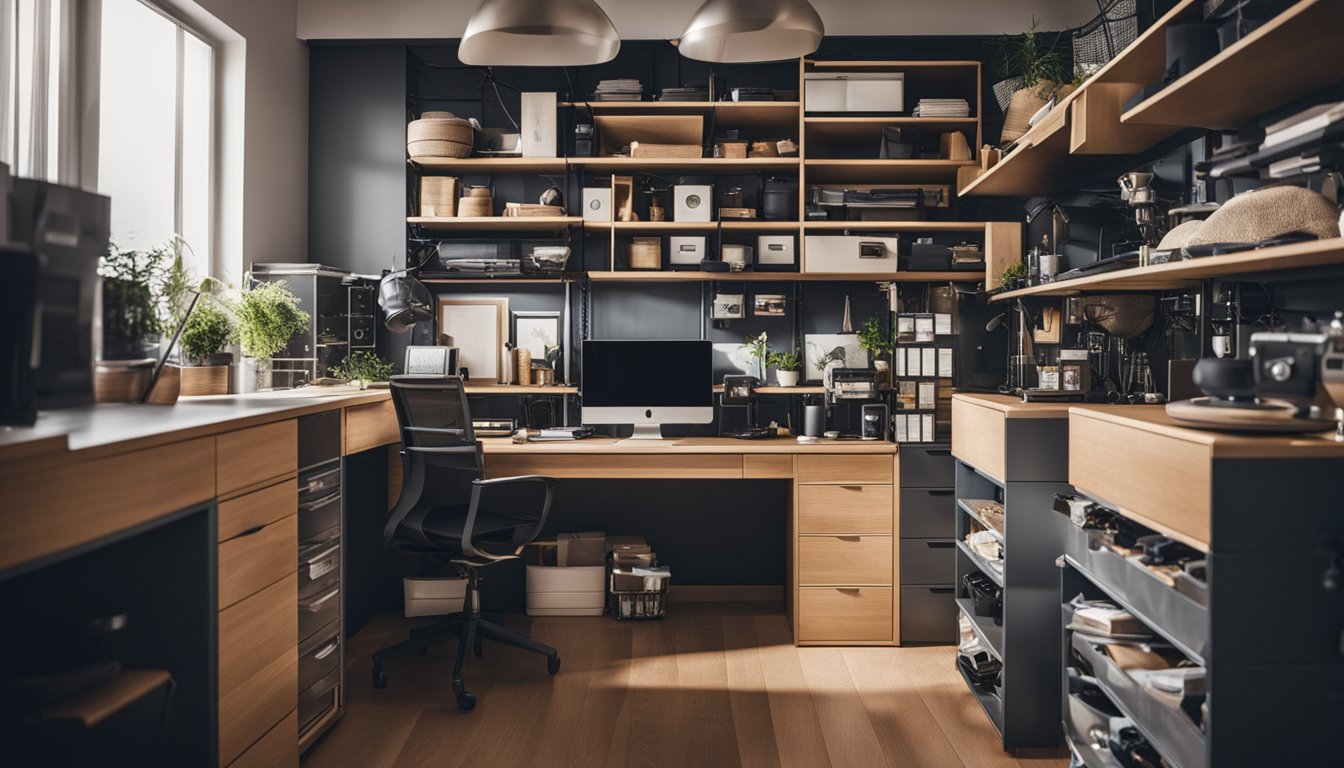Late updated: 13 Apr 2025 12:04
Written by: Daniel Harper
Maximising Space With Smart Storage Solutions: Innovative Ideas for a Clutter-Free Home
Transforming a small living area into a functional space can seem daunting, but it's achievable with the right strategies. Maximising space effectively requires the use of smart storage solutions that blend seamlessly with your home's aesthetic. By employing creative ideas and selecting multi-purpose furniture, we can ensure that every inch of our home serves its purpose without compromising on style.

Vertical storage options are game-changers in small spaces, allowing us to utilise the often-overlooked spaces on our walls. Hidden areas, like under-bed storage and behind-door hooks, provide valuable storage without cluttering the visible areas of a room. Customised solutions, such as modular shelving and foldable furniture, cater specifically to our needs and maximise floor space efficiently.
Innovation doesn't stop at the usual shelves and cabinets. There are numerous furniture pieces and accessories designed with storage efficiency in mind, such as tables that double as wall art and room dividers that work as bookshelves. By incorporating these creative pieces, maintaining an organised environment becomes effortless, adding both functionality and elegance to our living spaces.
Key Takeaways
- Vertical and hidden storage can significantly enhance space utilisation.
- Multi-functional furniture adds both style and efficiency.
- Customised solutions are key to maximising limited spaces.
Utilising Vertical Space and Hidden Areas
In our quest for efficient storage, making the most of vertical space and covert areas is essential. By leveraging these unused dimensions, we can optimise organisation and create a more spacious living environment.
Maximising Wall Space with Shelving
Wall-mounted storage offers a practical solution for harnessing vertical space. Floating shelves can serve both aesthetic and functional purposes, displaying items while keeping them within easy reach. By installing these at varying heights, we can accommodate items of different sizes, from books to decorative pieces.
Using wall hooks and pegboards allows us to hang utensils, tools, or accessories, maximising utility. These options keep surfaces clear, creating an organised appearance.
Consider tall bookcases or cabinets, reaching from floor to ceiling, which provide ample storage without occupying valuable floor space.
Under-Bed and Over-the-Door Opportunities
Under-bed storage is a clever way to utilise an often-overlooked area. We can use storage boxes or built-in drawers to stash away seasonal clothing or extra bedding. This keeps items accessible yet out of sight, maintaining room tidiness.
Over-the-door organisers offer another smart use of vertical space. They hang effortlessly and can hold shoes, accessories, or toiletries, making them a versatile addition to any room. This approach leverages unused door areas, enhancing storage without requiring additional furnishings.
Employing these strategies helps us make the most of hidden areas, providing ample storage while maintaining a clean, open living space.
Built-In Solutions for Hidden Storage
Built-in drawers and cabinets seamlessly integrate within our living spaces. We can incorporate them under staircases or alongside structural features like pillars, offering hidden storage without altering the room’s aesthetics.
Custom furniture with secret compartments can also provide unexpected storage. Coffee tables with hidden sections or mattresses with built-in drawers deliver additional space for less frequently used items.
Fitted wardrobes can house hidden shelving behind doors or inside alcoves, making efficient use of every centimetre available. This integration of storage features preserves open floor space and maintains a sleek, uncluttered look in our homes.
Innovative Furniture and Accessories for Storage Efficiency

Smart storage solutions require a blend of innovative furniture and clever accessories. By incorporating multi-functional pieces and well-planned accessories, we can transform cramped spaces into organised sanctuaries, fitting even the tiniest apartments.
Multi-Functional Furniture for Space Saving
Multi-functional furniture is vital for optimising small living areas. Sofa beds, ottomans with storage and extendable dining tables are excellent examples. These pieces serve dual purposes, saving space without sacrificing functionality or style. Imagine a living room where a coffee table doubles as a storage chest, holding blankets, books, or even toys.
Wall-mounted desks offer flexibility by serving as workstations yet folding away when not in use. These sleek designs keep floor areas clear, creating an illusion of space. For bedroom storage, beds with built-in drawers or headboards with shelves offer extra storage without additional furniture.
Accessorising with Containers and Dividers
Organisational accessories like storage containers, drawer dividers, and shelving units make chaos manageable. Storage containers, such as stackable bins, maximise vertical space by fitting into wardrobes or under beds. Drawer dividers prove invaluable in kitchens and bathrooms, ensuring utensils and toiletries are easily accessible.
Pegboards are a fantastic way to keep items like kitchen utensils or tools handy and off counter surfaces. When coupled with containers or boxes, they enable us to configure storage solutions to our specific needs. Additionally, clear containers help us quickly locate items, especially in pantries and closets, reducing the time spent searching.
Labelling and Decluttering for a Tidier Home
Consistent labelling is the key to a clutter-free environment. It helps us maintain organisation by ensuring everything has its place, making tidying up a breeze. Label everything from storage bins to pantry items, choosing clear tags or stickers that are easy to read.
Regular decluttering should accompany labelling efforts, giving us a chance to assess what we truly need and what can be let go. Properly labelled storage makes it easier to organise and maintain the system, transforming even tiny apartments into well-managed spaces. By labelling effectively and keeping clutter at bay, our homes remain efficient and balanced.
Frequently Asked Questions

In small living spaces, optimising every nook for storage is essential. Smart solutions can help maximise functionality without compromising on aesthetics.
How can I make the most of limited space in my flat with creative storage solutions?
To effectively use limited space, consider multifunctional furniture such as sofas with hidden compartments or beds with drawer units. Using vertical storage helps utilise wall space efficiently, and investing in tailor-made shelving for unique spaces can maximise usability.
What are some budget-friendly storage options for compact living areas?
Repurpose items you already own, like using baskets for storage underneath tables or on shelves. Use adhesive hooks for additional hanging space in cupboards or closets. Stackable boxes and vacuum-sealed bags can be great for seasonal clothing storage.
Can you suggest some DIY storage solutions for optimising space at home?
DIY solutions like creating floating shelves with basic wood planks and brackets can be customised to fit your space. Consider making a pegboard organiser for flexible and adaptable storage. Crafting storage cubes from old crates is another simple yet effective DIY approach.
What innovative ideas can be adopted for increasing storage in a small bedroom?
Use the back of doors for hanging organisers or shoe racks. Opt for a bed with built-in drawers or utilise the space beneath with storage boxes. Wall-mounted nightstands can save floor space, while headboards with shelves offer additional storage.
In what ways can shelving be maximised to enhance storage capacity?
Install shelves above doorways or windows to take advantage of high wall space. Adjustable shelving units allow for flexible storage options as your needs change. Group similar items together in labelled baskets or containers for an organised and accessible arrangement.
How can underutilised spaces be transformed into effective storage in small apartments?
The space under staircases is often overlooked but can become a great storage area with custom cabinetry or pull-out drawers. Corners can accommodate corner shelves or hanging racks. Use the gap between large appliances, like refrigerators and walls, with narrow, wheeled shelves for easy access.
